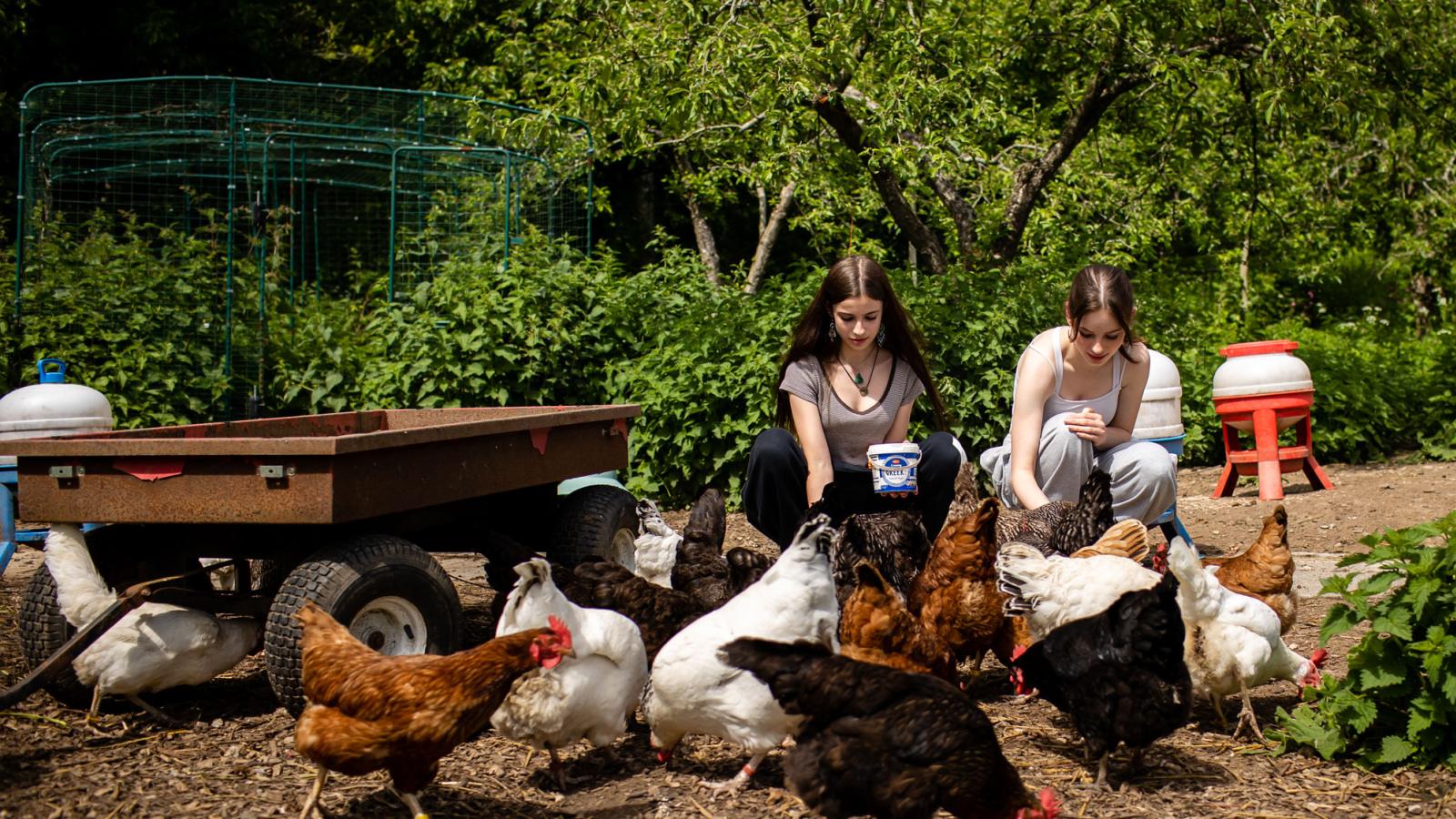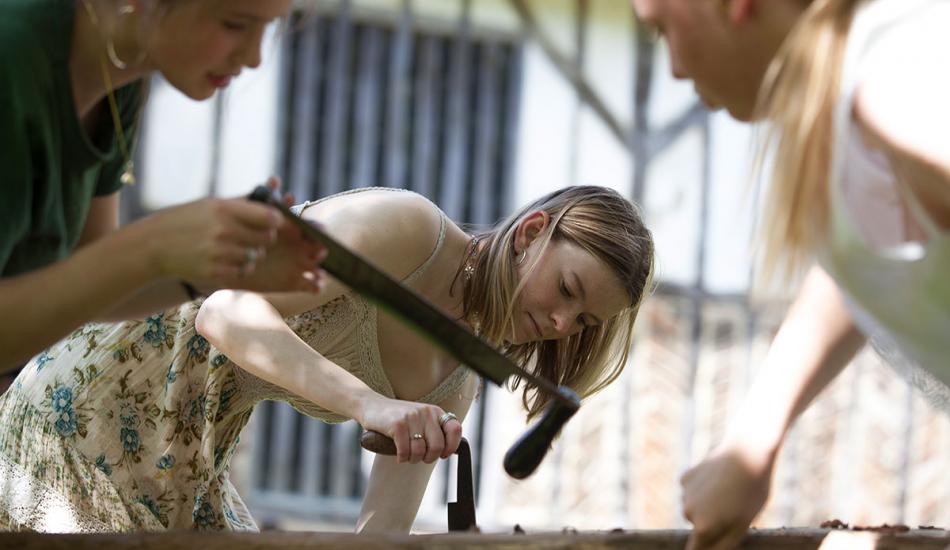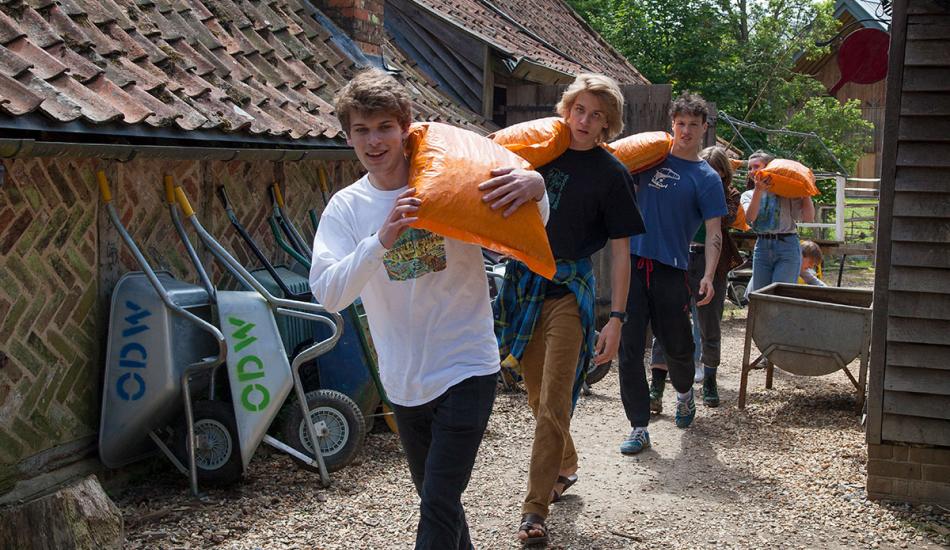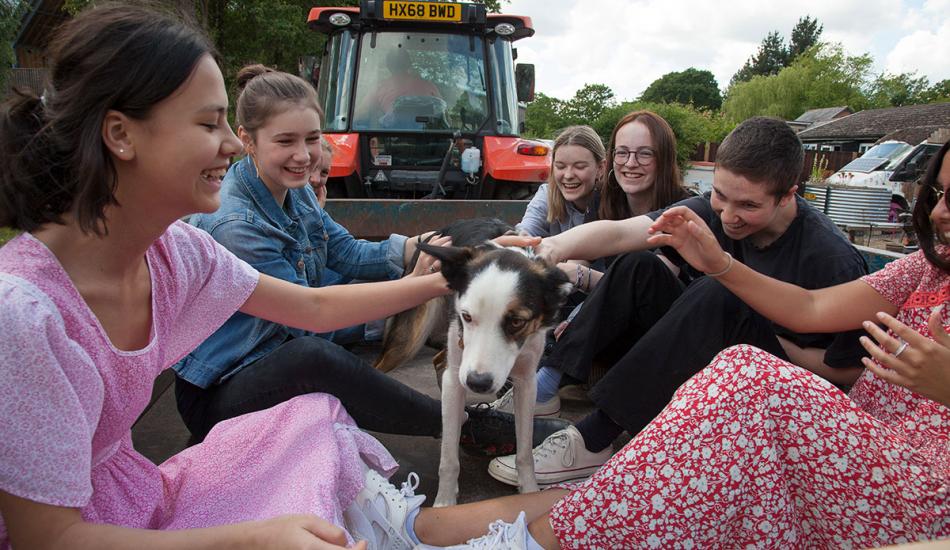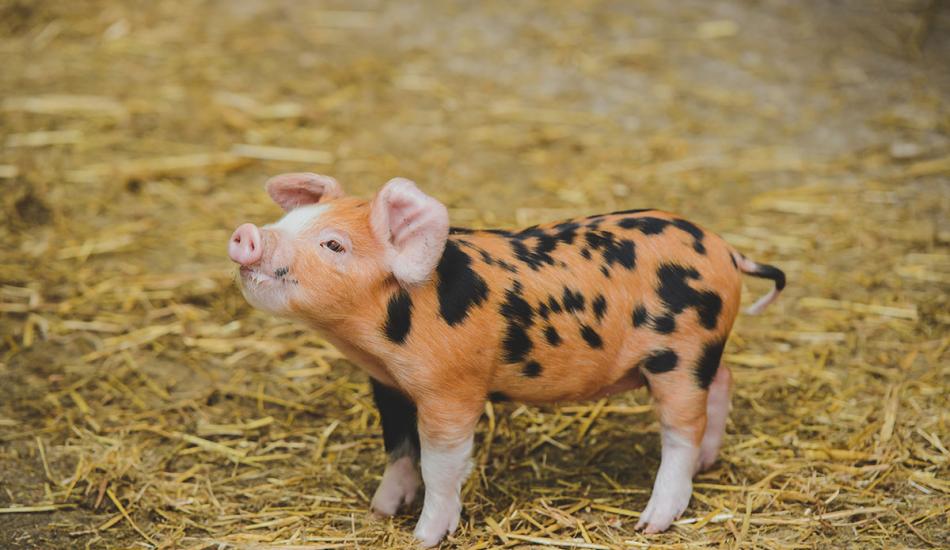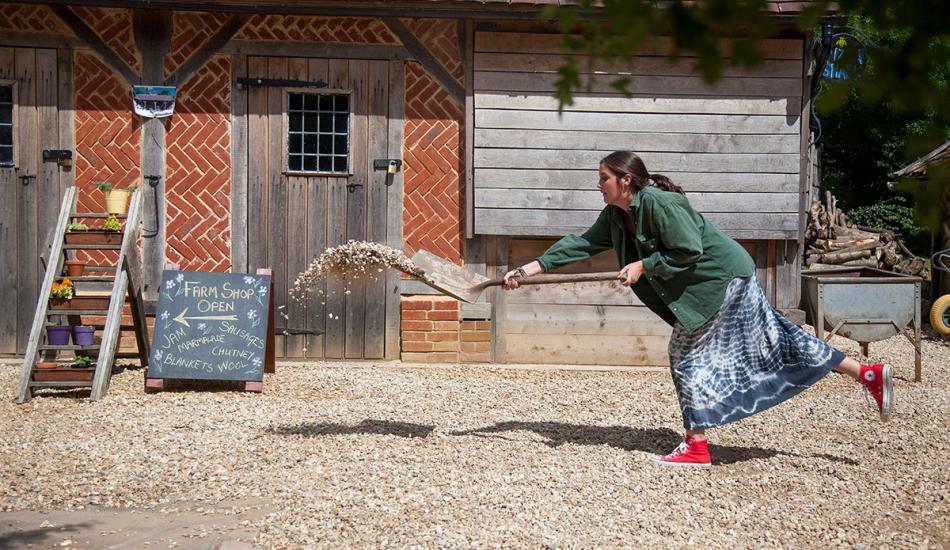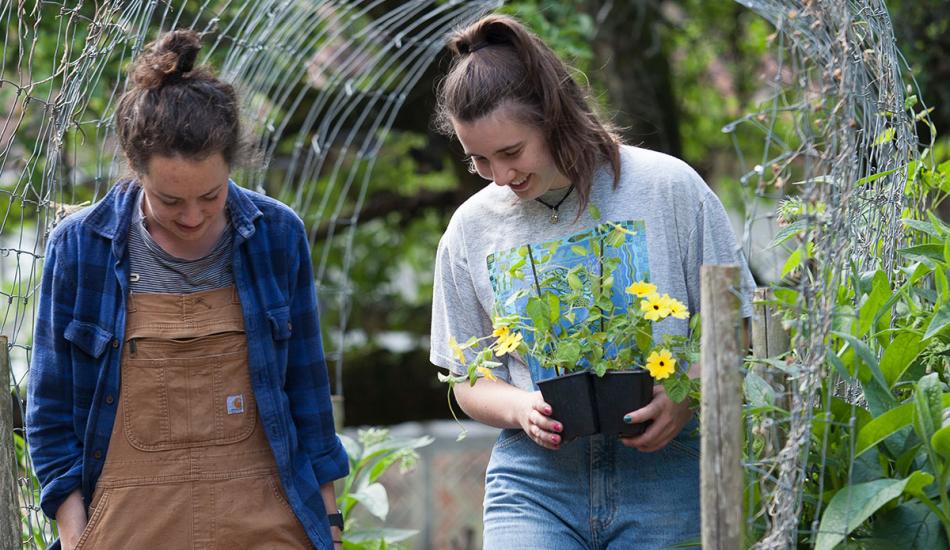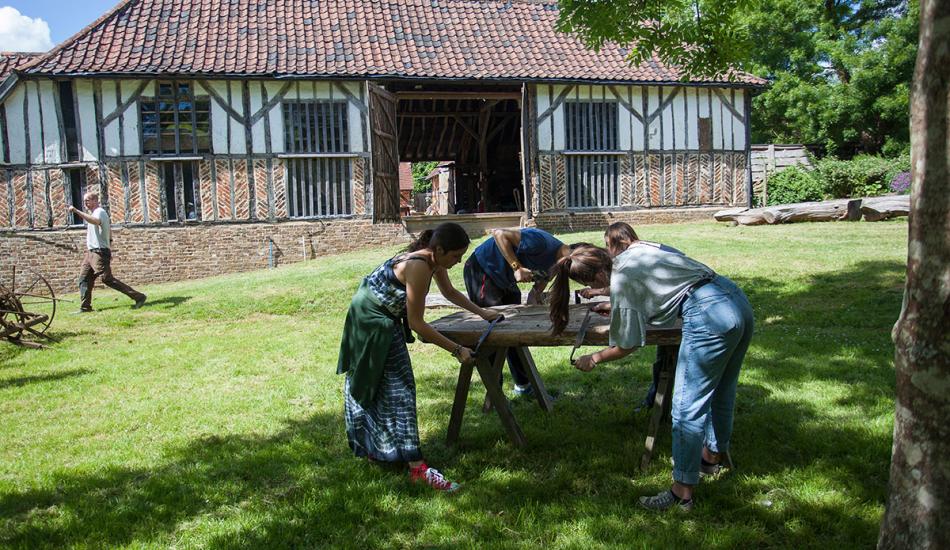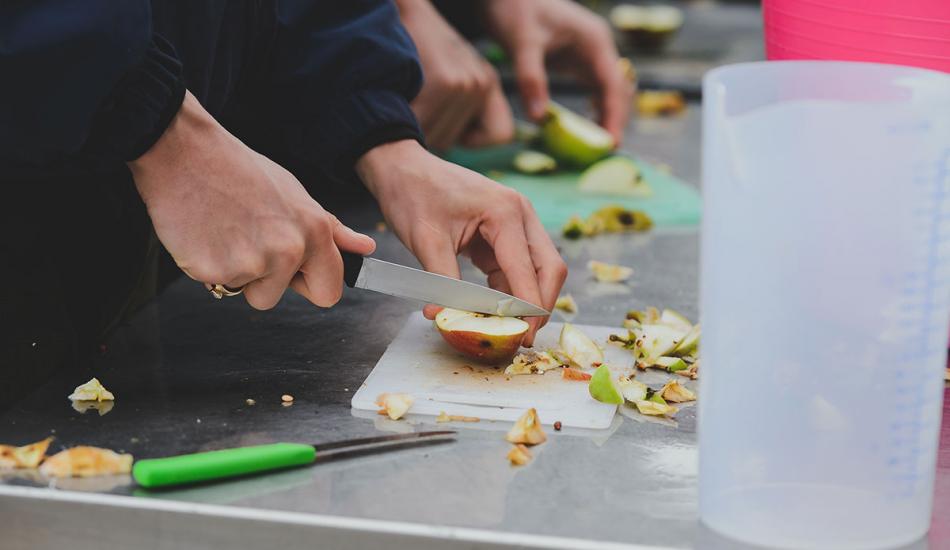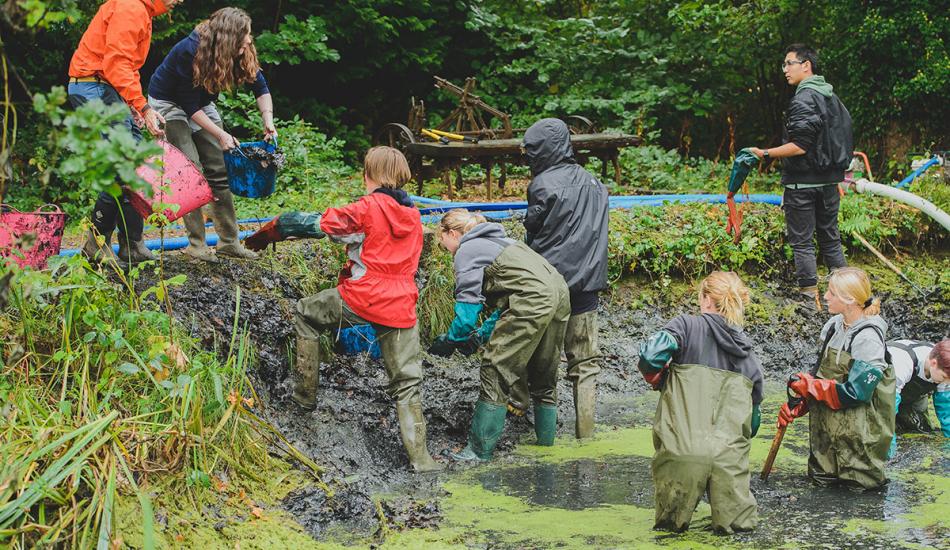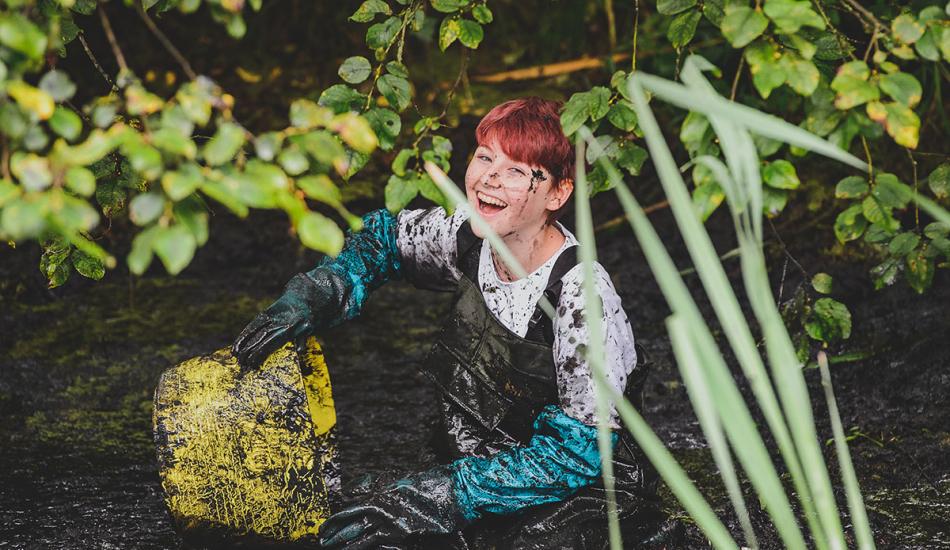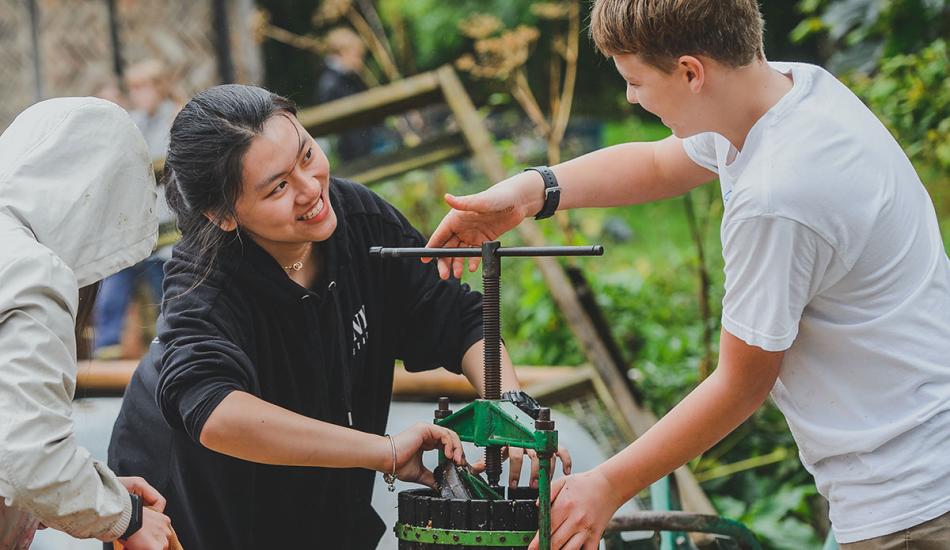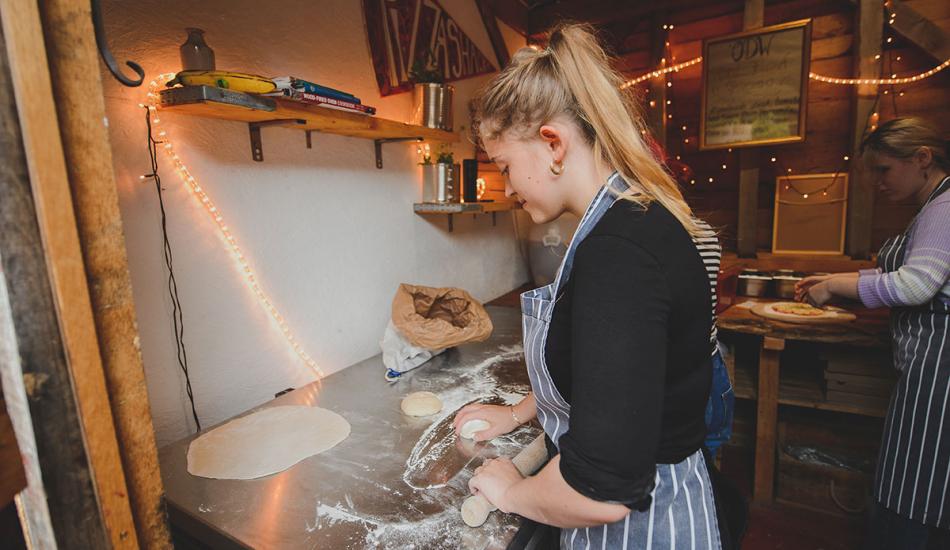It is a place where students put into practice the school motto, 'work of each for weal of all', and really understand how their contribution matters, both now and in the future. Our aim in Outdoor Work is to become renowned for running an ethical and sustainable farm/smallholding that has education at its heart.
- Block 3 (Year 9)
- Blocks 4 and 5 (Years 10 and 11)
- Sixth Form
Every student who joins Bedales will get to experience Outdoor Work in Block 3. Rotating through a carousel of skills, all students gain some exposure to each area of ODW's rich variety of activities. These include planting trees, beekeeping, hedge-laying, timber framing, wood whittling, making chutneys and jams, weaving and spinning wool, and working with our livestock. Students are also assigned a garden plot and a polytunnel plot to help manage and grow a variety of fruit and vegetables over the year. The produce is used in the Bakehouse, where bread and other traditional food is made every week; groups take it in turns to work on this important element of school life.
A typical week's session may see one group blacksmithing candle holders whilst another group works in the wool room spinning wool. Or one group could be found in the polytunnels tending their vegetable plots, another moving sheep, whilst the other makes quiche in the Bakehouse using homegrown produce. Students are not formally assessed in Block 3. An opportunity to deepen the skills developed on this course is available in the corresponding Bedales Assessed Course (BAC) option in Blocks 4 and 5 (Years 10 and 11).
BAC Outdoor Work
The Outdoor Work BAC is entirely different from other courses. The success of the student is largely dependent upon the degree of effort and enthusiasm with which they approach the course, their reaction to the challenges which arise, and the execution of a practical project. It is a course which values and evaluates personal qualities, as well as academic abilities.
The overall aim of the course is a practical education in ‘head, hand and heart’. During Block 4, each student is given the opportunity to experience new and meaningful skills, as well as to become more aware of their environment. The first two terms consist of a Foundation Course, in which all students practise a variety of skills and carry out tasks in the following six areas:
- Animal Husbandry: working with our pigs, alpacas, sheep, chickens, bees and, very soon, cattle
- Cooking: cooking from scratch using produce from our farm - everything from bread baking to butchery, cakes to pickles
- Building: construction and restoration of buildings and pig arks, training in safe tool use
- Gardening: foraging, seed propagation, crop rotation and fruit and vegetable growing
- Country crafts: willow, wool and hazel work, blacksmithing
- Conservation: creating habitats, hedge laying, planting, coppicing
During the final three terms, students will apply themselves to a particular project of their own choosing, either on an individual or group basis. Students can choose projects that allow them to develop the skills learnt during the first two terms.
Assessment
All students will maintain a journal which will record the journey that their chosen project takes. The journal must consist of an introduction to the project, plans, drawings and photographs; comments from staff and peers; details of visits to relevant sites (museums, farms, etc.); expeditions (working horse shows, agricultural fairs, etc.); personal assessments of the progress and the outcome/conclusion. The finished project may be presented to the course moderator as a detailed journal or a photographic record of events, with a verbal discussion of the student's thoughts and objectives. How work is presented is very much up to students, allowing them to work to their strengths. In all cases the emphasis will be on the observation of the students at work, their commitment, enthusiasm, attainment in practical skills, social interaction, co-operation, initiative and creativity.
Students have the option of producing a portfolio of work which might cover a number of different skill sets. For example, one student may elect to care for the fruit cage and make jams from the fruit. They may take charge of record keeping and be responsible for the pigs over a stated period of time, as well as take part in a small aspect of a building project. This portfolio approach allows students to develop a number of different areas of interest. There is also the option to work on a major group project (the main criteria of which is that it must be of benefit to the school community and estate). For example, in 2016 a group project consists of three students who are developing an open barn into a farm shop selling produce from the farm.
Sixth Form students have the opportunity to be involved in an Enrichment course in timber framing with our visiting expert timber framer Gabriel Langlands; the students are currently building a barn which will double as a teaching space for Outdoor Work. We have added an Enrichment course in food and cooking this year which is an exciting new development. There are also fantastic opportunities for 6.1 students to complete their extended project (or part of the project) within the department. The Badley Senior initiative provides our 6.2 students with an opportunity to develop their leadership skills as well as demonstrate to our newest students the importance of Outdoor Work.
What do students get from Outdoor Work?
Outdoor Work incorporates a holistic approach to learning and student welfare. Whereas in most other subjects students are marked in a traditional way, here we take into account the student’s journey; their effort, enthusiasm and development. We also aim to make the time they spend with us fun; this can mean learning a new skill or simply relaxing their cerebral side as they undertake physical work. They also gain the satisfaction of seeing instant results from their toil. We see the development of both social and problem solving skills, enhanced respect for themselves and their environment and ownership of their own work, which is hugely beneficial for their self-confidence. The subject matter also promotes self-discipline and responsibility.
Outdoor Work staff
The department plays an important role in staff welfare and professional development within the school. We regularly have experts in for a day to teach students a specialised craft or to train staff and equip them with the necessary skills to teach the basics to students. For example we have had a hedge layer, willow weaver, thatcher and blacksmith visit over the past year to teach students and interested staff. An exciting opportunity for Outdoor Work and Bedales is visiting Blacksmith, Lucille Scott, who works from the Sotherington Barn once a week. On these days there is an opportunity for staff to sign up to a short course in Blacksmithing over a number of weeks.
Head of Department: Andrew Martin
Follow Outdoor Work on Twitter and Instagram

